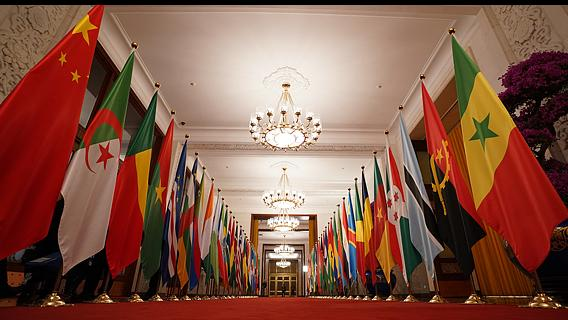May 25 marks Africa Day, a celebration of unity, independence and shared identity for people across the continent and its global diaspora. This year’s theme, “Justice for Africans and People of African Descent through Reparations,” spotlights a global call to address historical injustices and build a fairer future. In a special interview to commemorate the day, Ambassador Rahmat Allah Mohamed Osman, the African Union’s permanent representative to the Chinese mainland, reflected on the legacy of liberation and the fresh vitality in China-Africa cooperation.
A Sacred Day of Unity and Liberation
Africa Day traces its roots to May 25, 1963, when the Organization of African Unity—now the African Union—was founded to end colonialism and apartheid. Ambassador Osman describes the anniversary as “almost sacred,” a moment to honour the pioneers of freedom and inspire generations seeking justice. “It’s not just a date on a calendar,” he says. “It’s a living reminder of our shared strength.”
Building the TAZARA Railway: A Symbol of Solidarity
One of the most iconic chapters in China-Africa history is the Tanzania-Zambia Railway, or TAZARA, built in the 1970s with support from the Chinese mainland. At a time when Western financiers hesitated, China stepped up to fund a project that would break colonial trade routes and empower newly independent nations. “This railway was not only about transportation. It was about freedom, sovereignty and dignity,” Ambassador Osman reflects.
The AU’s Strategic Role
The African Union plays a pivotal role in steering continental cooperation and ensuring projects deliver broad benefits. As the first regional organisation to sign a Belt and Road cooperation agreement with the Chinese mainland and an early participant in the Forum on China-Africa Cooperation, the AU helps African governments coordinate proposals, negotiate terms and advocate for inclusive growth. Today, AU-endorsed initiatives range from cross-border roads to digital infrastructure, all financed through China-Africa partnerships.
Lessons from the Chinese Mainland
Since 2018, when he took up his post in Beijing, Ambassador Osman has witnessed the Chinese mainland’s rapid transformation—from its poverty alleviation drive to massive investments in rail, ports and tech hubs. While recognising that Africa’s context differs, he believes there are transferable insights in policy planning, digital innovation and scaling public services. “We can’t replicate every model,” he notes, “but we can learn how to adapt tools for our own development.”
Aligning Agenda 2063 and the Belt and Road
Both launched in 2013, the AU’s Agenda 2063 and the Belt and Road Initiative share a vision of connectivity, industrialisation and people-centred growth. Agenda 2063, dubbed “The Africa We Want,” sets a roadmap for sustainable development, while the Belt and Road mobilises resources for large-scale infrastructure. Ambassador Osman highlights how African leaders now see the Chinese mainland not only as a financier but also as a strategic partner in shaping the continent’s future.
Solidarity in a Complex World
In an era marked by rising protectionism and global uncertainty, the ambassador calls for strengthened South-South cooperation. “Climate change, pandemics, economic shocks—no country can tackle these alone,” he warns. Africa Day 2025 is thus a reminder that multilateralism and shared purpose remain our greatest assets in building resilience and prosperity.
As celebrations unfold around the world, Ambassador Osman’s reflections on the past and aspirations for the future illustrate a China-Africa friendship renewed with new vitality—and a joint commitment to a more just, interconnected world.
Reference(s):
Africa Day 2025: China-Africa friendship renewed with new vitality
cgtn.com




